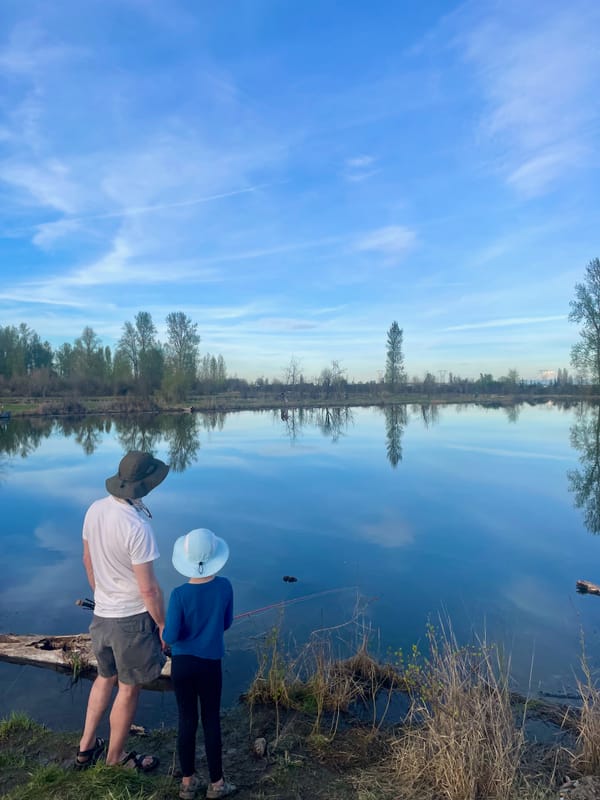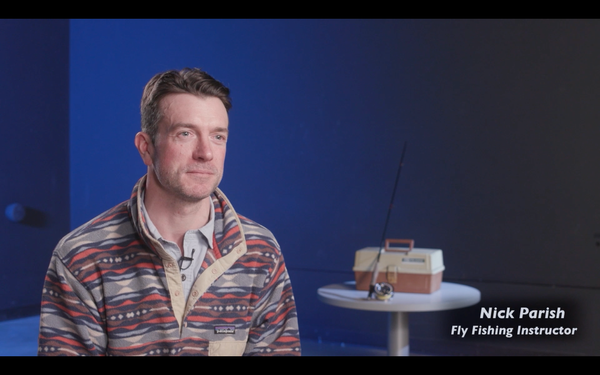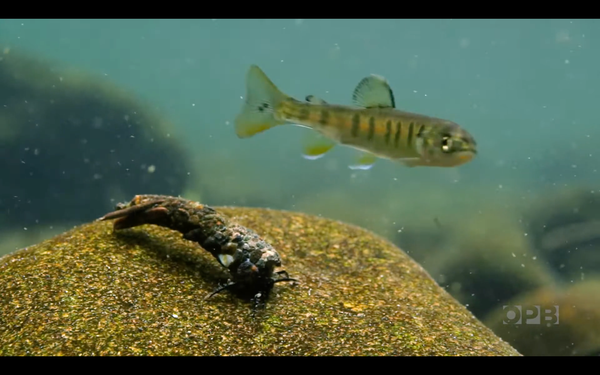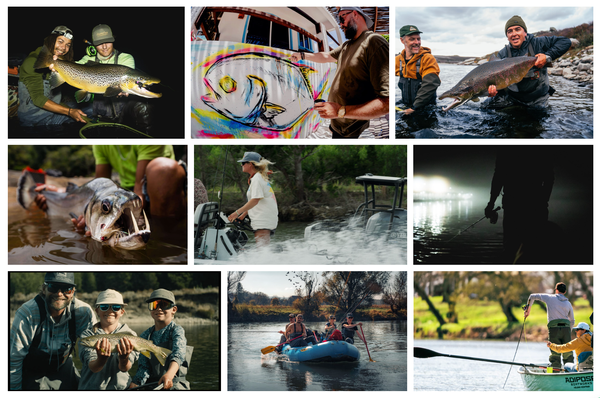River time: A manifesto
For me, a river is a sacred place. Any old river will do. It's a nice bonus if trout live there. For when you step into a river, you step away from false time, and surround yourself in what's real.
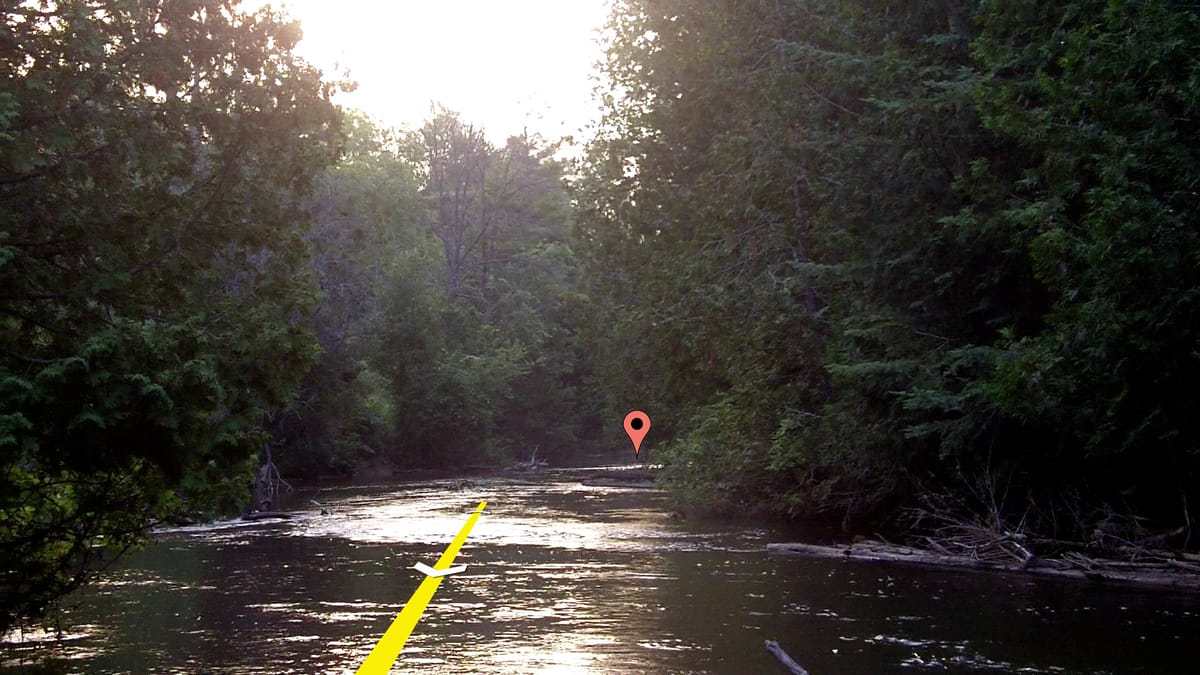
There's a rock formation atop Cader Idris, a mountain near Snowdonia, in Wales, that looks like a couch. Legend has it a giant (Idris) sat there (in his chair—cader).
In ancient British lore, few were brave enough to spend the night. If you did, in the morning one of three things would have happened. You'd have either died, gone mad or transformed into a poet.
Cader Idris is a sacred place. Its lore a lesson in how to approach nature's sacred places.
Chiefly, on their timetable. Communion with the sacred requires a moment-by-moment, personal approach. It requires presence.
It requires an approach where the sense-check is internal. Not directed by satnav timing precision or windows of opportunity, calendar invites, daily pace or step logging.
When morning comes on Cader Idris, the sacred place has changed you. When you immerse yourself in a fly fishing experience, everything's different on the other end.
In fly fishing there is no ten-minute-notification before the hatch starts; you just have to feel: the wind, the sun on the water, the barn swallows. No "hard stop at the hour" save when you can't see your hand in front of your face. And even that just signals the start of the day for nocturnal creatures, brown trout, those who follow them, possessed spirits working their magic at night.
In fly fishing there is no ten-minute-notification before the hatch starts; you just have to feel: the wind, the sun on the water, the barn swallows. No "hard stop at the hour" save when you can't see your hand in front of your face.
For me, a river is a sacred place. For when you step into a river, you step away from false time, and surround yourself in what's real. Any old river will do. It's just a nice bonus if it holds trout.
There's freedom in a river. You're inside something that always goes, until it dries up or is dam(n)ed. And even if humankind condemns it to one of those fates, it's not penned—it's changed. It's now a dry bed, or a reservoir.
You can't tell a river to flow between two and three, then again at six. It's always there, going. And when I step into one, I'm there with it, in the now.
A river's only limits are climate and gravity. And those are things we can't fully comprehend, one because it seems so complex, one because it seems so simple.
Across vast oceans, tides ebb and flow according to many factors. The water movement we rely on in rivers is measured in CFS: cubic feet per second. But when we step into a river, we're joining the Current Flow State.
The aquatic measurement, CFS, is one of torment or serenity, ferocity or meekness, enumerating the natural but never restraining or defining it. We wait patiently for a muddy river's heavy flow to soften, to clear its turbidity, so fish can see our flies better. And we rest a slow and warm river so when we test the fish with capture their exertions aren't fatal.
Distance condemns us to quantify the river. These are sins that would not pass at midnight on Cader Idris. 350-400 CFS, time to head up and fish. 1,000 CFS, too heavy today. We put our love in the calendar, set an alarm, invite participants. Lessen it by giving it a number. Visiting forces us into this trap.
But wake up with a river for a year, and these number will be meaningless. Your measurement will exist on an infinite spectrum. One derived from far greater authority. How many shades of the sky have you seen in your lifetime? Do you think you've seen them all?
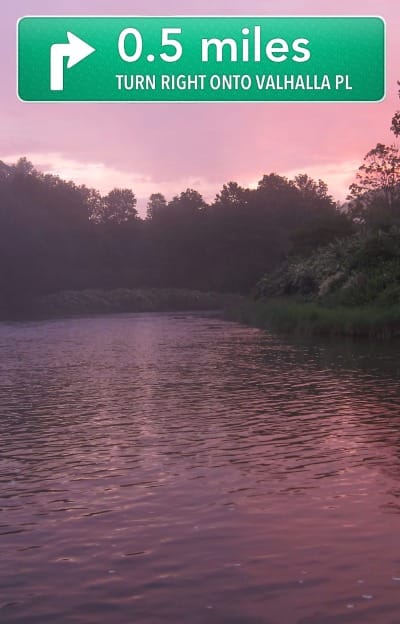
There's a counter-premise to this. It is focus. The art of shutting out.
The champion of the world at avoiding distractions will be the one who can balance a budget in a blender, make an origami crane on a tightrope, pilot a stunt plane while baking a cake. Hooray for them. They manage in spite of the world, however distasteful they find its occupants.
The universe is hosting a grand party in their honor to which they will offer no attention. It will sing their praises but they will be insulated from them. Their eyes will never wander up above the sidewalk in the canyon of heroes and see their shoulders carved in marble, and never feel pride in their chest upon hearing the wind chanting their name.
I propose the better way to focus is to let it all in. Free our minds, untethered, in the only place big enough to equal their power.
No, this feeling in the river, concentrating hard on the fly, feeling the current flow past isn't focus. It's freedom from focus. I propose the better way to focus is to let it all in. Free our minds, untethered, in the only place big enough to equal their power. We put ourselves in nature's mindset. In a river's mindset. We hope one day its complexity will match our complexity. For now, we make it human, and bite off a piece, so we can meet it as a hypothetical equal, even knowing that's a fallacy.
Call the union Current Flow State. It isn't immediate. It takes hours, or days, or months, to know without knowing. And the minute we step away, we struggle to put words to the feelings until the next reunion.
We try to shed our technology-stunted perception. We practice the art of opening out. We fight free of our calendared life and flow of days and schedules. And in doing so we feel a reciprocal nervous response, a phantom limb of the world attached, dry land's soft undulations after time at sea.
The vapors of a connection, a tether to human things, endures. It pulls you away from what's in front of you, a stirring in the night, the torments of Cader Idris.
Getting through it is what's important. Arrival time is altogether irrelevant.


